FRCPath Examinations during the COVID-19 pandemic
Following the College’s decision in March 2020 to defer the Spring examinations for the first time in our history, work immediately began on exploring the options available to deliver a full examination session later in the year. This included the possibility of online tests of knowledge, oral examinations, and social distancing of candidates and examiners where there is a need for examinations to take place in person. There are a number of challenges to consider around examination security, virtual proctoring and safe social distancing of candidates.
To help us gauge the likely uptake of examinations in Autumn 2020 and beyond, we carried out a survey of affected and potential trainees. The purpose of the survey was to contribute to the planning process, alongside chairs of examiner panels in each specialty, about what could be done to deliver the examinations. Our survey received 1,285 responses. We have estimated that approximately 130 cellular pathology, chemical pathology and medical microbiology and virology trainees will be delayed in training at a critical progression point at the upcoming Annual Reviews of Competence Progression (ARCPs) and so it is imperative that we are able to adjust our examinations to meet this challenge.
Session intentions and candidate preparation
While the majority of respondents – approximately 75% – expressed a clear interest in sitting the examinations as soon as possible (Figure 1), it should be noted that when candidates were asked about their preparation for the examinations in the current climate, just under half said they were unable to undertake the preparations they would have normally anticipated (Figure 2). This may have implications in terms of the Autumn pass rate and result in a higher proportion of candidates having to re-sit in Spring 2021 than would normally be expected.
When analysed further, only 38% of UK-based respondents indicated that they will be able to prepare as they would normally, reflecting the significant changes seen in service delivery since the start of the pandemic. Although 26% of UK-based respondents have been deployed as a result of the pandemic, a slowing down of routine work across all other areas has meant that candidates are not being exposed to the usual range of cases in keeping with the curriculum.
Figure 1: Respondents’ plans for taking FRCPath examinations in the next 12 months
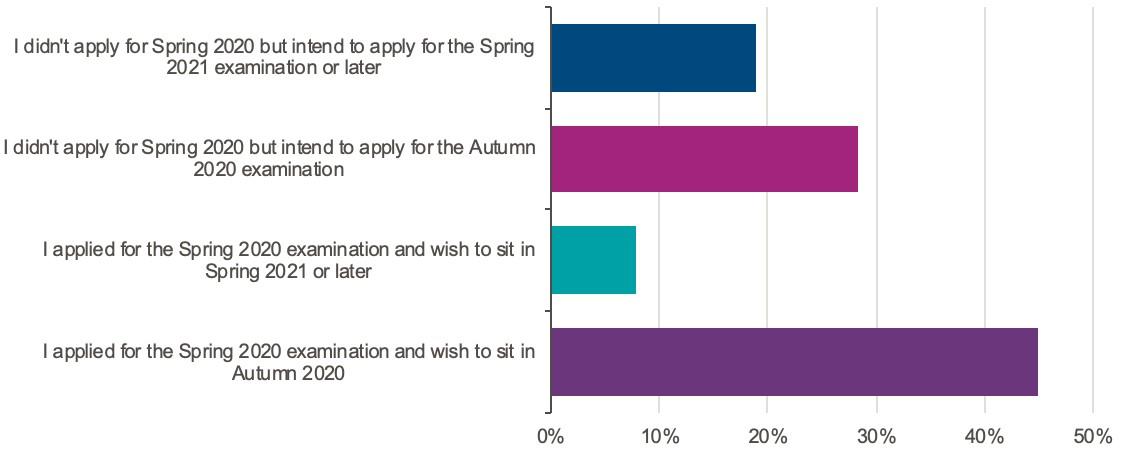
Figure 2: Respondents’ ability to work and prepare for examinations
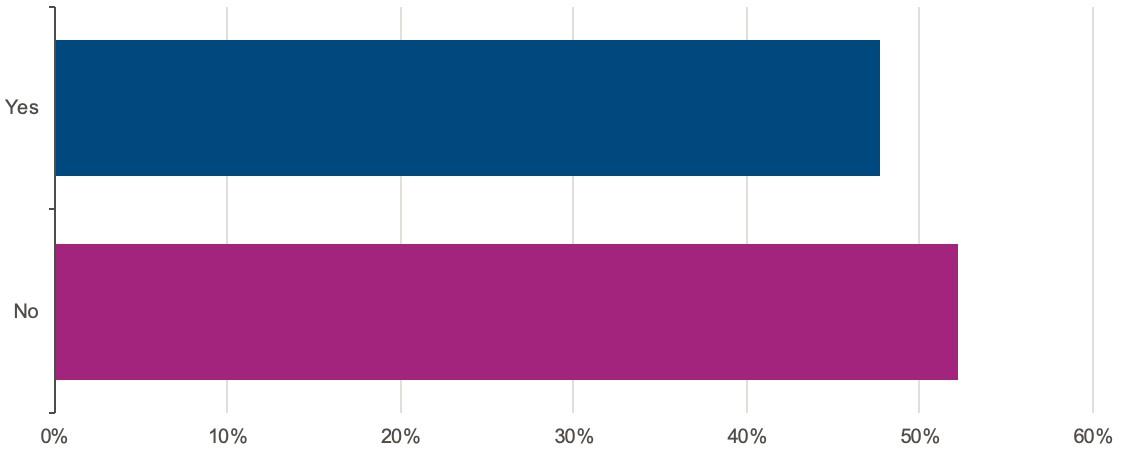
The FRCPath examination is a rigorous test of knowledge and practice and it would be expected that, even in normal circumstances, asking candidates if they felt confident about their ability to pass the exam would most likely provoke a range of responses. Nonetheless, more than 50% of candidates feel not/slightly confident (Figure 3) – this may reflect not only the slowing down of routine work or redeployment to a different area, but also the number of individuals adversely affected by COVID-19 with respect to their personal circumstances (e.g. COVID-related concerns, childcare, mental health, financial concerns), which can affect candidate preparation and confidence and may have implications on pass rates over the next few examination sessions. With the continued need for more trainees to enter the workforce, it is still a reassuring sign for the profession that over 40% of candidates are confident or very confident that they will be successful at their examinations in the next 12 months.
Candidates should discuss with their educational supervisors, training programme directors or equivalent the most appropriate timing for taking the examination, reflecting their personal experiences during these challenging times. Candidates should be encouraged and supported in sitting their examinations at the earliest possible opportunity but should not feel pressured to sit any examination.
Figure 3: Autumn 2020 candidates’ confidence at being able to successfully sit an examination in the next 12 months
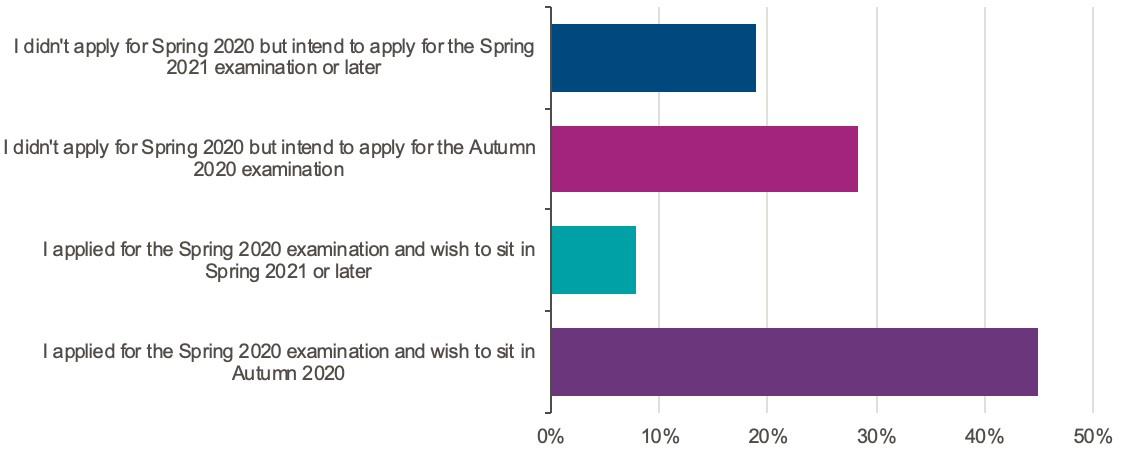
Part 2 Histopathology and haematology
In the largest specialties – histopathology and haematology – consideration needs to be given to accommodating a potentially unprecedented number of candidates over the next six months. An ‘extended’ Autumn session is one option, as remote delivery of these two examinations is much less likely to occur given the dependence on practical microscopy. This would involve offering candidates the opportunity to sit their Part 2 examination either in October 2020 or January 2021, but not both. Candidate preferences for sessions were split more or less evenly between the two dates (Figure 4).
A key issue is the availability and distribution of examination materials, e.g. glass slides, which are difficult to produce in sufficient numbers, with the necessary quality and standardisation. In addition, the preparation and organisation of examinations with large numbers of candidates is challenging. With COVID-19, the challenges are increasing, since it is highly likely that an additional sitting will be needed in order to run the examinations safely.
Figure 4: Examination session preferences
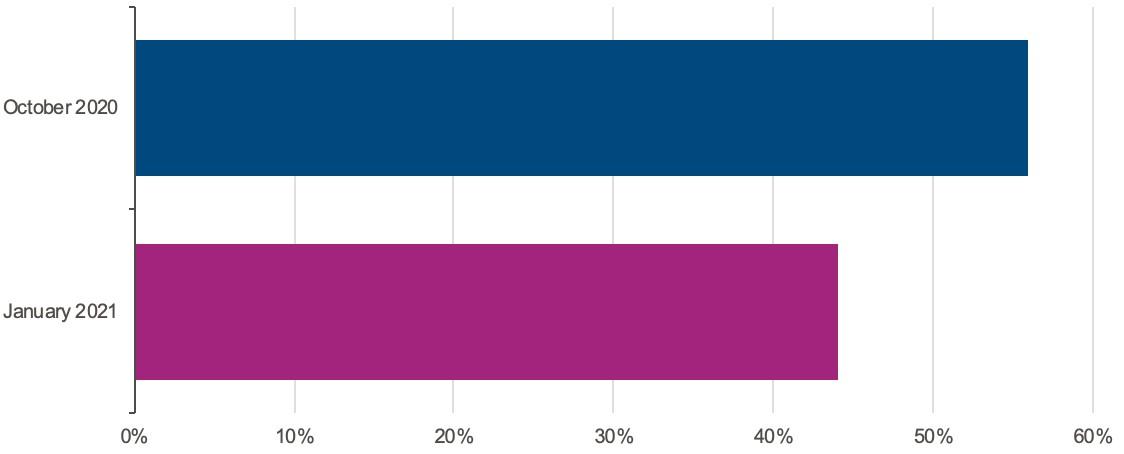
Overseas candidates
College examinations are also taken by a number of overseas-based candidates, for some of whom the FRCPath forms a compulsory part of their training – approximately a third of applicants for Spring 2020 (Figure 5). It is this group of candidates who are likely to be most affected by restrictions in place as a result of the pandemic, given that the future of international travel, visa issues and imposed quarantine is uncertain. However, overseas respondents to the survey felt that they were more prepared to sit the examination (70%) than UK-based respondents (54%). Remote delivery of examinations would be of particular benefit to this group of candidates at the Part 1 level, but the Part 2 examination format does not necessarily lend itself to this approach. Candidates are advised to consult the travel advice being issued by both the UK government and the government of their own country before making any travel arrangements to sit the FRCPath examinations.
Figure 5: FRCPath as a compulsory part of training for overseas candidates
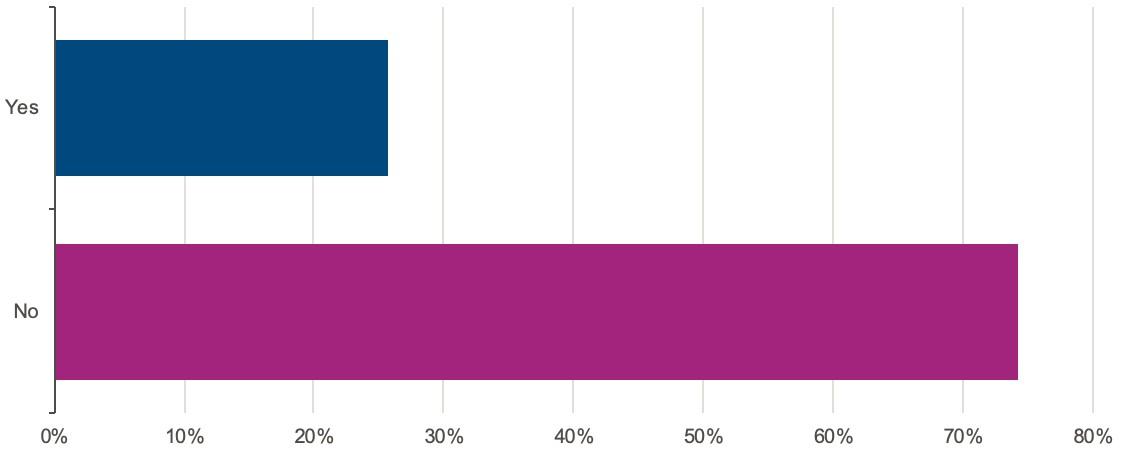
Remote examination delivery and reasonable adjustments
The College receives and implements a number of requests each session for reasonable adjustments to the examination process to accommodate conditions such as dyslexia and other specific learning disabilities (SpLDs), physical disabilities and pregnancy. While these accommodations can be implemented straightforwardly when examinations are delivered in the usual circumstances, the impact on candidates of moving to a remote platform is uncertain at this stage. There will certainly need to be consideration for delivering remote written examinations for candidates with an SpLD who may require extra support with navigating the software or oral examinations and by video conferencing for candidates with hearing difficulties who may rely on lip reading or other visual cues. The College has undertaken consultation work with candidates who have previously requested reasonable adjustments to the examination process to allow them to raise issues or concerns they may have over a move to remote examination delivery.
Conclusions and the way forward
These are unprecedented and challenging times for all involved in the delivery of education and assessment. Across the majority of medical royal colleges and faculties there has been a rapid push towards online and remote examination delivery that had perhaps been seen as a long-term project for the future. COVID-19 is pushing these changes rapidly up the agenda. Online examination solutions providers have also moved quickly to keep pace with an ever-evolving landscape – many organisations that had formerly only provided online question banking solutions are now working to offer remote delivery either in test centres or on candidates’ personal devices. While these may be challenging times for all involved in assessment and examination delivery, it is also the time for the College to modernise the examination process and deliver examinations in a way that is more reflective of trainees’ day-to-day life and practice.
Shelley Heard, RCPath VP (Learning)
Sanjiv Manek, Clinical Director of Examinations
Joanne Brinklow, Director of Learning
Helen Melluish, Examinations Manager
